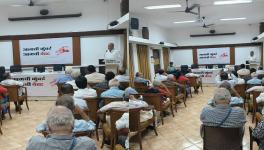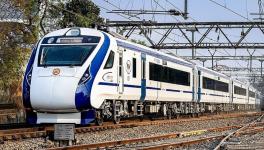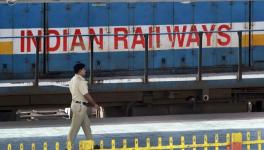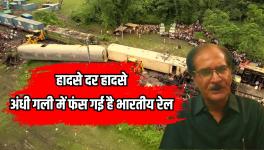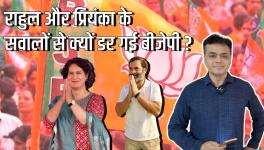Union Pins Hopes on ‘Public’ to Protest Privatization of Railways
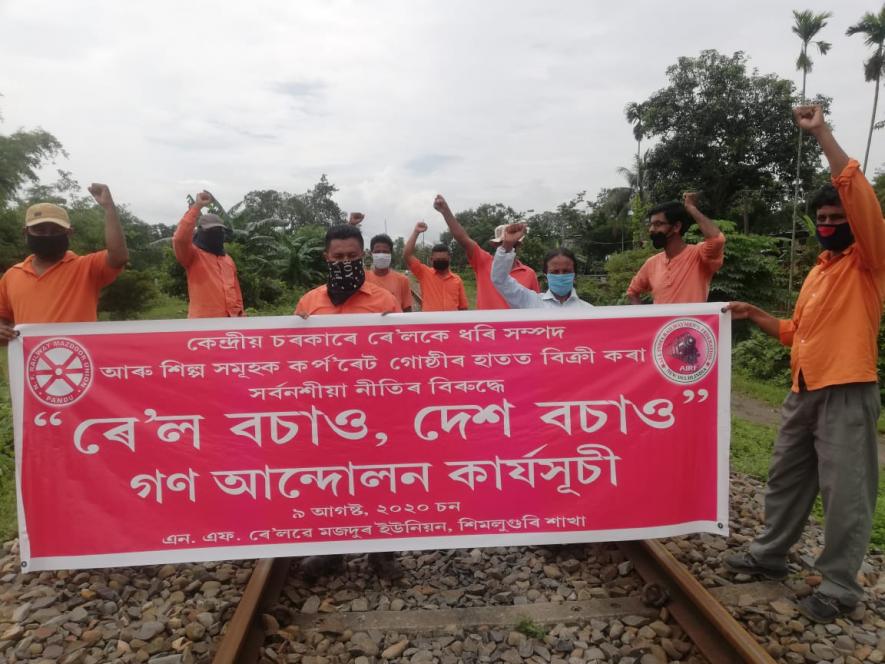
The largest railway union, All India Railwaymen’s Federation (AIRF), is all set to launch a campaign this month in a bid to draw the support of common man to its efforts of protesting against the privatisation of the national transporter.
A Jan Sampark (mass awareness) drive is planned to commence from September 14, involving numerous programmes by federations affiliated with the railwaymen body across the country, to connect with not just the Indian rail employees but also its passengers who, the body believes, will be among most affected by the participation of private players in the train operations.
“The idea behind the campaign is to spread the awareness among the public that ‘privatization’ [of Indian trains] is not just a matter of the rail employees but also of them,” Mahendra Srivastava, media director, AIRF, told Newsclick. “Appeals will be made to different sections of people to join the railway men’s protest against the centre’s move,” he said.
Almost a year after introducing the first-ever ‘private’ train, the Indian Railways in July furthered its aims of inviting private players in passenger train operations. It has opened 109 routes with 151 trains for private train operations at an estimated cost of Rs. 30,000 crore and floated the tenders for the same.
The development comes at a time when regular passenger services were suspended – now, for an indefinite period – on the account of COVID-19 outbreak in the country.
Though, a clarification was communicated by the Ministry of Railway that the 151 private trains will be over and above the existing trains, it was not enough to ward off the concerns raised by the union, which flay the tampering of the status of Indian Railway as a ‘social service provider’.
Demonstrations, public meetings, bike and torch rallies will be held as part of the awareness drive. The six-day long campaign will culminate into a nationwide protest on September 19 – the day also marking death anniversary of seven railwaymen who were shot dead in Punjab’s Pathankot during the last indefinite strike of railways, held in 1974.
In this direction, preparations have already begun with spate of protests making various railway zones – out of the total 17 of them – by unions, specifically in Dhanbad, Rameswaram, Hoshiarpur, and Nagpur.
The South Central Railway Mazdoor Union (SCRMU), one of the AIRF-affiliated unions, is reportedly also mulling over going on an indefinite strike.
“Railways must not be privatized for the very reason that it is not a ‘company’ that concerns itself with making ‘profits’. Instead, it carries certain social obligations,” Srivastava said, explaining that “it provides concessions in tickets to almost 128 categories including senior citizens and cancer patients,” among others.
Will the private player continue with those exemptions?, he asked. “Instead, the ticket prices will further increase and eventually the national transporter will be rendered unaffordable for the public at large.”
Moreover, similar attempts are also being made to begin the process of corporatising railway’s production units in next financial year – hiving off the current seven coach factories into one single entity, called the Indian Railways Rolling Stock. In addition to this, prospects of involving private players in freight operations is also being looked at by the centre.
Consequently, worries have mounted over the employment status of new recruitments as well as that of the existing staff. Already, with an economy on downward spiral, the railways has directed all zonal authorities to freeze new posts except those in the safety category.
Reportedly, there is a backlog of 2.90 lakh posts in the Indian Railways, which currently has over 12 lakh employees.
Recently, AIRF, which is affiliated to the central trade body Hind Mazdoor Sabha (HMS), also suggested various measures to the ministry for improving the financial health and would prove, according to it, to enhance railways’ productivity and efficiency. The measures, include in a letter dated August 21, were preceded by body’s reservations regarding outsourcing, corporatisation and privatisation of any arm of the national transporter.
Srivastava added that if the concerns of the railwaymen are not heard than a strike will be considered by the union. “However, for that a strike ballot (as also required by the law) has to be conducted first,” he added.
Get the latest reports & analysis with people's perspective on Protests, movements & deep analytical videos, discussions of the current affairs in your Telegram app. Subscribe to NewsClick's Telegram channel & get Real-Time updates on stories, as they get published on our website.










